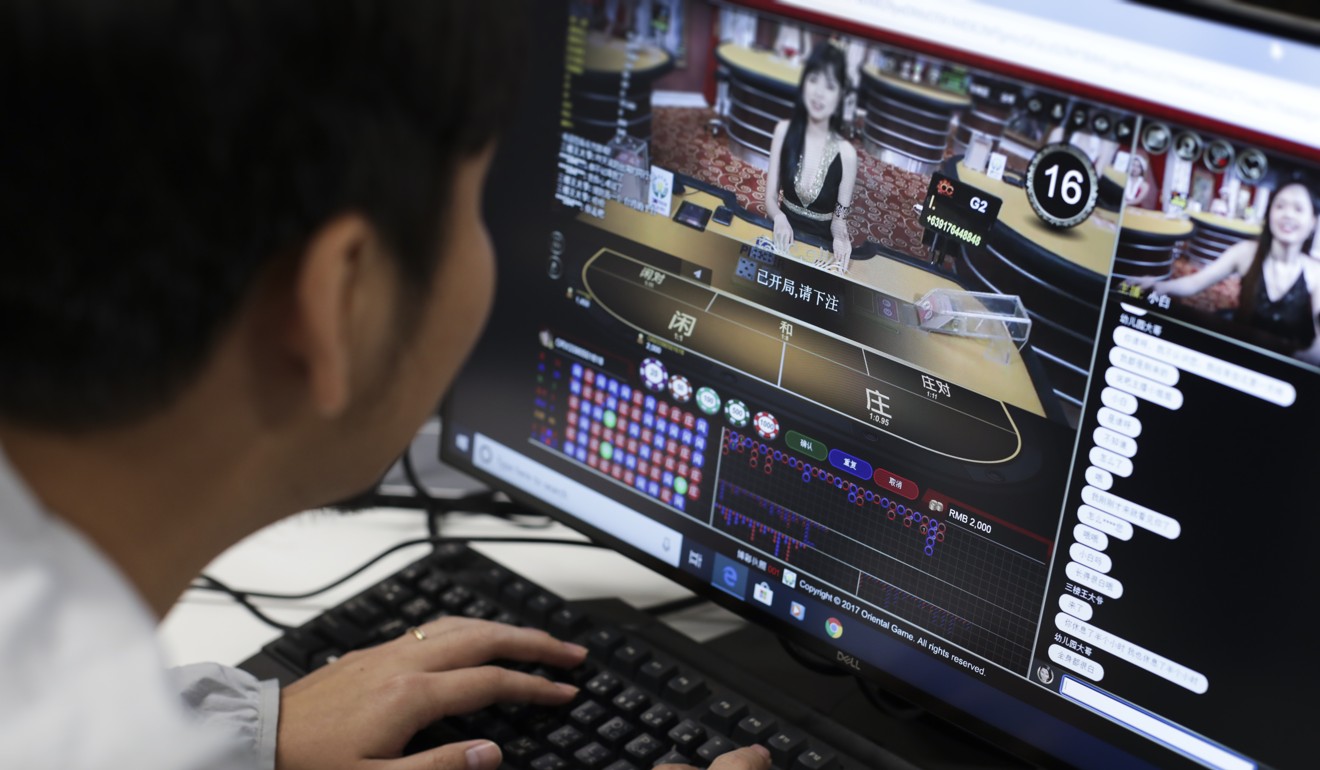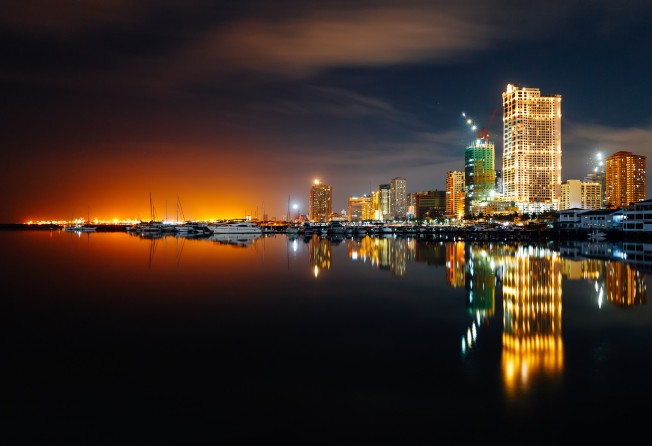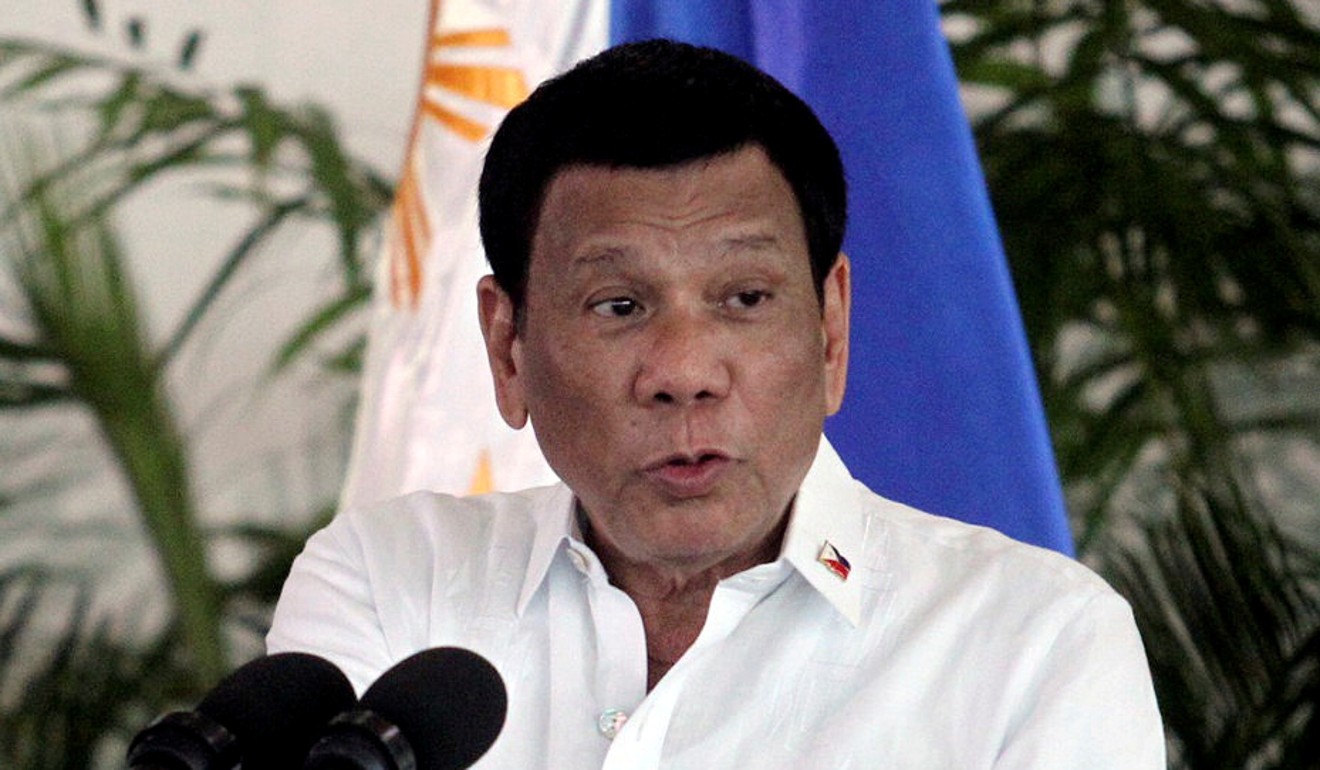
Hong Kong firms, Chinese gambling hit by Duterte’s freeze on reclamation in Manila Bay, Philippines
- Experts say gaming operators could take their business elsewhere, while litigation is a possibility for overseas firms committed to Manila Bay project
- The environment was a major concern in the Philippine president’s decision to withhold approval for the reclamation of more than 10,000 hectares of land

The Duterte administration’s decision to withhold approval for the reclamation of more than 10,000 hectares of land along Manila Bay could hamper the expansion plans of Philippine offshore gaming operators (Pogos), while adversely affecting firms from Hong Kong and mainland China which were meant to be part of the project.
On January 13, President Rodrigo Duterte said it would be unlikely for him to give the green light to the “mind-boggling” project if there was no guarantee that the environment would be protected and people’s health safeguarded.
Joey Roi Bondoc, research manager at Colliers International Philippines, said Pogos would seek alternate locations for expansion should the reclamation bid not go ahead.
“There will be some impact in the short term. Office vacancy in the [Manila] Bay area is less than 1 per cent. The offshore gaming firms’ expansion is already stifled by limited office space and residential units,” he said. “So with less supply in the pipeline, these firms are compelled to expand outside Metro Manila.”
More than 50 Pogos – which mainly cater to punters from mainland China, where gambling is illegal – are currently operating in metropolitan Manila, where they employ an estimated 250,000 migrant workers from China.
Michael L. Ricafort, chief economist at Rizal Commercial Banking Corporation, said Pogos’ operating costs were likely to rise if the proposed reclamation projects along Manila Bay were not pursued.
“Given the lack of land supply in central business districts [CBDs] in Metro Manila, reclamation has been an option to increase the supply of developable land that is relatively proximate to the CBDs,” he said.

“As a result, the additional supply of office and business space for Pogos’ operations, through reclamation projects in the Manila Bay area, could be reduced and could lead to higher prices and rental rates for existing properties that cater to Pogo operations in the Manila Bay area.”
Ricafort said the area was among the biggest beneficiaries of Pogo operations, as it had experienced the highest property price appreciation and increase in rental rates since the licences for such firms began to be processed in 2016.
However, these spiralling rents and property prices were also likely to force Pogos to move to fast-growing cities and localities around the country, he said.
The Philippine government’s decision to hold back on approving the reclamation project could also adversely affect foreign companies that were meant to participate, including China Harbour Engineering Company – a subsidiary of state-owned China Communications Construction Company – and Hong Kong-based Ho & Partners Architects Engineers & Development Consultants.
Ho & Partners has obtained a provisional architectural planning and project management contract for a 407-hectare chunk of the project, while Dutch dredging company Royal Boskalis Westminster last December announced it had won with China Harbour Engineering a €650 million reclamation contract in Manila Bay, to be split evenly between the two companies.

Peter Berdowski, Boskalis’ chief executive, said work on the project would start in the first quarter of 2020 and was expected to be completed by 2023.
The Philippine Reclamation Authority (PRA), Boskalis and China Harbour Engineering did not respond to requests for comment on Duterte’s pronouncement.
Ricafort from Rizal Commercial Banking Corporation said arbitration or litigation, especially in international courts, could happen following the government’s apparent change of heart, though he noted that “some compromise or amicable settlement could be reached by the private investors and the Philippine government”.
“Issues on the sanctity of contracts remain a grey area in terms of implementing and enforcing other laws and regulations, and also in upholding public interest. This will be a consideration for some international investors, especially in highly regulated businesses and industries [in the Philippines],” he said.
The PRA said it had given notices to proceed to four projects, including the Navotas City Coastal Bay Reclamation Project and two reclamation projects in Pasay.
Ricafort noted it was environmental issues that had prompted Duterte to take a cautious stance on the Manila Bay project.
“At the onset, the Duterte administration has already signalled stringent standards that must be observed by various businesses, investors and industries on environmental protection, health, safety, and other regulations and laws,” he said.
Purchase the China AI Report 2020 brought to you by SCMP Research and enjoy a 20% discount (original price US$400). This 60-page all new intelligence report gives you first-hand insights and analysis into the latest industry developments and intelligence about China AI. Get exclusive access to our webinars for continuous learning, and interact with China AI executives in live Q&A. Offer valid until 31 March 2020.